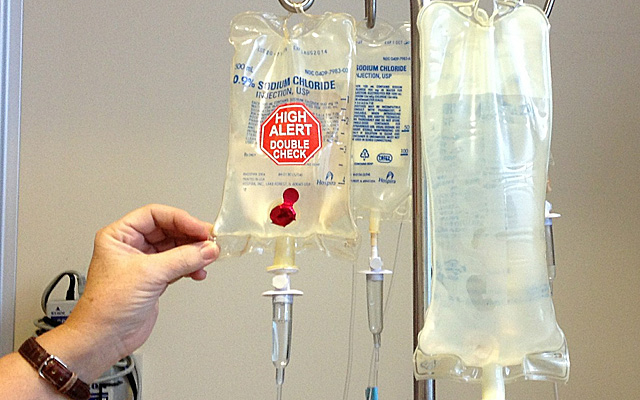Only good, independent and reliable information about health from experts.
Showing posts with label biomarkers. Show all posts
Showing posts with label biomarkers. Show all posts
Tuesday, April 25, 2017
New technology can detect tiny ovarian tumors
MIT: Most
ovarian cancer is diagnosed at such late stages that patients’ survival
rates are poor. However, if the cancer is detected earlier, five-year
survival rates can be greater than 90 percent. Now, MIT engineers have developed a far more sensitive way to reveal
ovarian tumors: In tests in mice, they were able to detect tumors
composed of nodules smaller than 2 millimeters in diameter. In humans,
that could translate to tumor detection about five months earlier than
is possible with existing blood tests, the researchers say.
Wednesday, January 25, 2017
Biomarker tests in breast cancer: decision on chemotherapy remains difficult
IQWiGThe German Institute for Quality and Efficiency in Health Care (IQWiG)
investigated the benefit of biomarker tests to support the decision for
or against adjuvant systemic chemotherapy in certain breast cancer
patients, that is, women with primary hormone receptor-positive, HER2-negative breast cancer and up to 3 affected lymph nodes. When the Institute presented its preliminary report in November 2015,
the evidence was inadequate to prove the benefit or harm of such tests.
However, the results of further relevant studies had been announced for
the beginning of 2016. Following a request by the Federal Joint
Committee (G-BA), IQWiG
did not immediately start preparing the final report after the
scientific debate on the preliminary report, but waited for these
results.
Wednesday, June 24, 2015
New Biomarkers Might Help Personalize Metastatic Colorectal Cancer Treatment
UCSD: Metastatic colorectal cancer patients tend to live longer when they respond to the first line of chemotherapy their doctors recommend. To better predict how patients will respond to chemotherapy drugs before they begin treatment, researchers at University of California, San Diego School of Medicine conducted a proof-of-principle study with a small group of metastatic colorectal cancer patients. The results, published June 17 in PLOS ONE, revealed two genes that could help physicians make more informed treatment decisions for patients with this disease.
New Biomarker Identified in Women with Mental Illness
UCSD: Psychiatric disorders can be difficult to diagnose because clinicians must rely upon interpreted clues, such as a patient’s behaviors and feelings. For the first time, researchers at University of California, San Diego School of Medicine report identifying a biological marker: the over-production of specific genes that could be a diagnostic indicator of mental illness in female psychiatric patients.
Wednesday, June 3, 2015
More Ovarian Cancer Detected if Biomarker Velocities Are Scrutinized
ClinicalOmics: A single biomarker plus a fixed threshold may equal a missed
diagnosis—actually, a great many missed diagnoses. But fixed thresholds
aren’t inevitable. For example, a serum biomarker used to screen women
for ovarian cancer can yield more accurate results if it is assessed
serially. This biomarker, called cancer antigen 125 (CA125), can detect
cancer in 86% of women with invasive epithelial ovarian cancer
(iEOC)—provided the pattern of CA125 concentration changes over time is
assessed. If, however, CA125 figures in a simplistic “less than/greater
than” metric, screen-detected cancers are just 41% or 48%, according to
data from clinical trials or clinical practice, respectively.
Monday, May 25, 2015
Discovery of biomarker offers hope for brain cancer patients
UNSW researchers have discovered a biomarker that can help predict if
standard cancer therapy will extend the life of patients with malignant
brain tumours. The discovery means doctors can now better target treatment for
patients not sensitive to standard chemotherapy or radiotherapy. The
finding may also eventually lead to new approaches for extending life
and improving the quality of life for people diagnosed with brain
cancer. The highly aggressive brain tumours, known as glioblastomas (GBM),
are considered incurable and have an average survival of less than 15
months. Approximately 1800 Australians are diagnosed every year with
GBM.
Subscribe to:
Posts (Atom)



